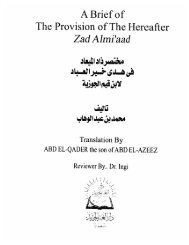You also want an ePaper? Increase the reach of your titles
YUMPU automatically turns print PDFs into web optimized ePapers that Google loves.
4. THE PRIMARY SOURCES<br />
OF<br />
ISLAMIC TEACHINGS<br />
The Qur’an is the primary and fundamental source of all teachings of Islam. Since<br />
nothing can be more reliable than what the Creator of the universe Himself says, then<br />
anything -- whether an idea, a concept, a teaching, or an action -- that in fact goes against<br />
the Qur’an is not acceptable from the Islamic point of view.<br />
The next, but equally important, source of Islamic knowledge is the Prophetic<br />
Traditions, contained separately in the authentic books of Hadith.<br />
The Qur’an<br />
The Qur’an, the Holy Book of Islam, is the literal “Word of the Almighty God”<br />
revealed to Prophet Mohammed (pbuh). It constitutes a restatement, correction,<br />
completion and perfection of the earlier divine messages. It is essentially a book of<br />
guidance for mankind, and existing in the form of a literary masterpiece contained under<br />
one cover.<br />
This is the Book; in it is guidance sure, without doubt, for all who are conscious of God. (2:2)<br />
The Qur’an was revealed to Prophet Mohammed (pbuh) through the agency of the<br />
angel Gabriel (Jibreel ). It was revealed, not as a complete book on one single occasion,<br />
but rather in stages, in numerous parts, over a period of about 23 years, starting from the<br />
40th year of the Prophet’s life and continuing up to his death. He was neither the author<br />
nor the compiler of the Qur’an. But he was the recipient of its text and its guardian, as the<br />
verses were stored in his memory. There is not a single word of the Qur’an which is the<br />
product of his mind, or which is expressed in his own wording.<br />
The Arabic text of the Qur’an, as we have it in our hand today, is exactly the same<br />
as was received by the Prophet (pbuh), 14 centuries ago, not a single word added or<br />
deleted. It was preserved during his lifetime not only by way of writing it down under his<br />
own direction but, first and foremost, by committing to memory the whole of it, on the<br />
part of his Companions. Ever since that time it has been preserved with uninterrupted<br />
continuity. The Qur’an affirms that God has Himself taken the responsibility for its<br />
preservation and protection against any corruption:<br />
It is We Ourselves who have, without doubt, sent down this message; and it is We who shall<br />
assuredly guard it [from all corruption]. (15:9)<br />
The Hadith<br />
Whatever Prophet Mohammed (pbuh) said, did, or approved of in action, is called<br />
Sunnah, and the report of it is called Hadith. The Prophet’s role was not simply to deliver<br />
God’s message to the people, but as the Qur’an explains, his mission included presenting<br />
himself as an example to be followed by the people. The life example of the Prophet is<br />
made available to all mankind in the recorded reports of hadith. Such a detailed and<br />
voluminous account of his life has been recorded and preserved that it has no parallel in<br />
human history.<br />
The importance of obeying the Prophet (pbuh) and following his teachings is evident<br />
from the Qur’anic instructions:


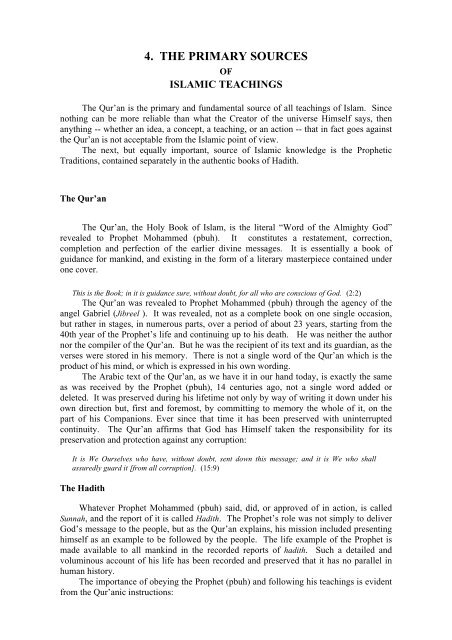

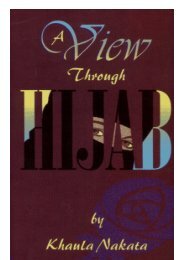
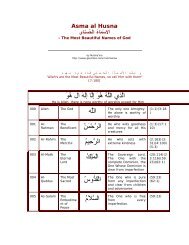
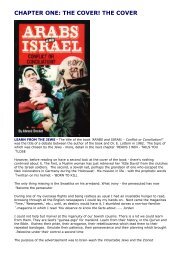
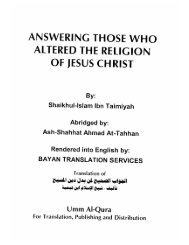
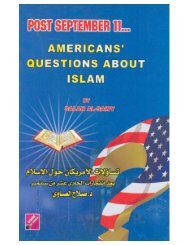
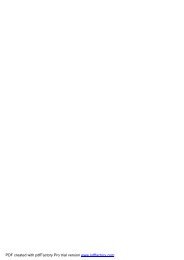
![Al-Quran - The Miracle of Miracles [ deedat]](https://img.yumpu.com/4137688/1/190x245/al-quran-the-miracle-of-miracles-deedat.jpg?quality=85)
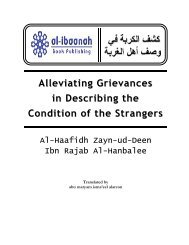
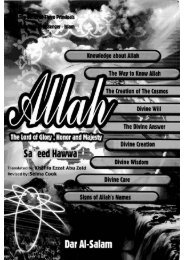
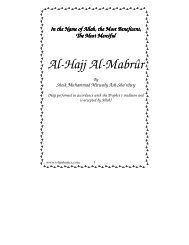
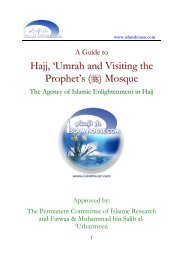
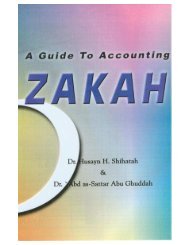
![A Collection Of Wise Sayings [ Al-Fawaid ].pdf](https://img.yumpu.com/4135801/1/190x245/a-collection-of-wise-sayings-al-fawaid-pdf.jpg?quality=85)
